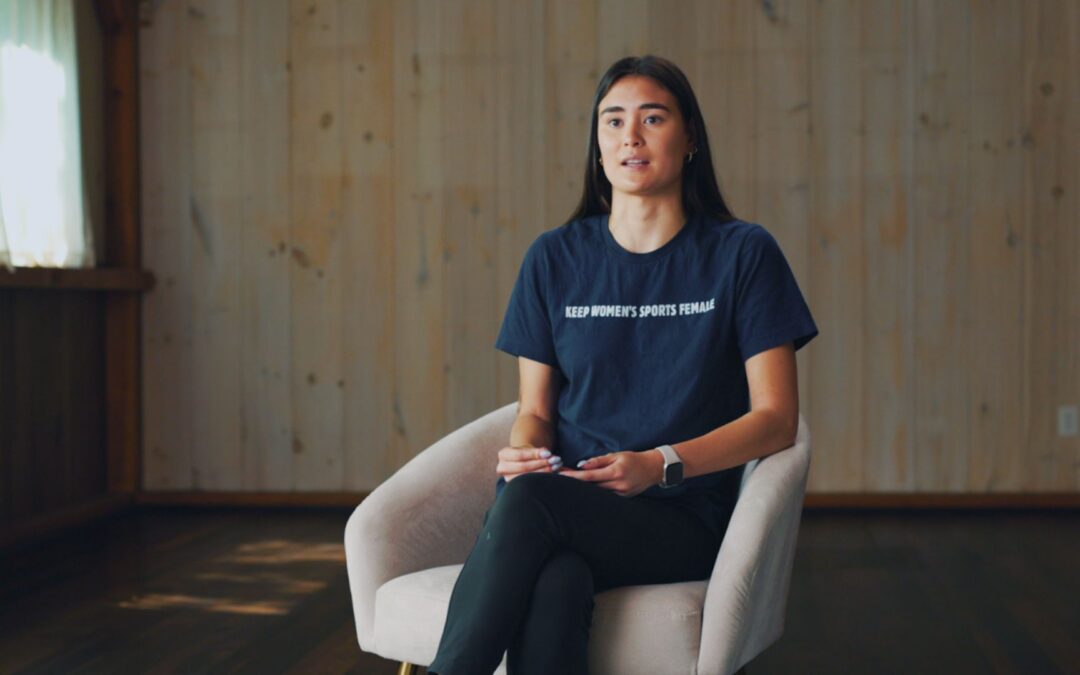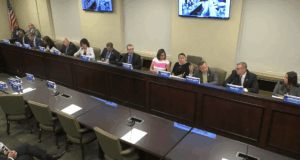Former University of Pennsylvania swimmer Paula Scanlan shares her story of what it was like to compete alongside male swimmer William “Lia” Thomas. Her testimony is both sobering and courageous—and it speaks directly to the heart of the case now before the U.S. Supreme Court.
In her words, Scanlan explained:
“To subject girls to undress in situations that their instincts are telling them is unfair, and to gaslight them into believing that it is fair and that you’re wrong and you’re the one who needs help is so damaging.”
These aren’t abstract concerns. They are lived experiences of young women placed in situations no female athlete should have to endure—all because radical gender ideology demanded they set aside common sense and their own discomfort.
A Call for Honest Conversation
Paula says the most important step is to open up the conversation:
“Just having open conversations and being honest, bringing this to the school board level, bringing this to friends and family… soon enough the entire community will be talking about it and it’ll become an issue that the higher-ups can’t ignore.”
She’s right.
Too often, girls who raise objections are told to stay quiet. They’re told their concerns don’t matter. But silence only empowers the policies that erode fairness and safety. Speaking up—at the dinner table, at school board meetings, in local communities—creates the groundswell that leaders cannot dismiss.
Standing With School Boards That Protect Girls
Paula also offered a direct word of encouragement to school board members across the country:
“To the school board members that are putting in these policies to fight all this craziness that’s been happening, you’re on the right side of history on this thing. Being pro-woman and pro-girl is never the wrong thing.”
At a time when female athletes are losing opportunities, records, and privacy to male competitors, those who take a stand for fairness are demonstrating true leadership.
That’s exactly why the Independence Law Center—joined by over 50 school board members across Pennsylvania—filed an amicus brief at the U.S. Supreme Court this week. The brief was submitted in Little v. Hecox and B.P.J. v. West Virginia, two pivotal cases that will determine whether Title IX continues to protect women’s sports as Congress intended.
Our message to the Court is simple: separating sports and private facilities by sex is not discrimination—it’s common sense. It’s what Title IX promised from the very beginning: equal opportunity for girls to compete and succeed on a fair playing field.
The Courage to Speak
Paula closed her conversation with a challenge that resonates with all of us:
“I encourage everyone to voice their opinions no matter how much you think others might disagree or how scared you are that you might have repercussions for speaking your voice. I think you need to be willing and be brave.”
Her words echo the heart behind our legal work. Courage is contagious. When young women like Paula speak up, when parents ask hard questions, and when school boards adopt policies rooted in truth, it inspires others to join the fight.
The Supreme Court will have the opportunity to restore clarity and fairness. But the cultural conversation is just as important. As Paula reminds us, every voice matters.
What You Can Do
- Pray for the US Supreme Court Justices as they consider these critical cases.
- Encourage your local school board members to stand firm in policies that protect women’s sports and privacy.
- Share Paula’s story to help others see the real impact of these policies on young women.
Together, we can build a culture where girls are not sidelined or silenced, but supported and celebrated.The Independence Law Center will continue to fight in court, but your voice in the community is just as vital. As Paula said—be willing, and be brave.
Watch The Interview Video:





